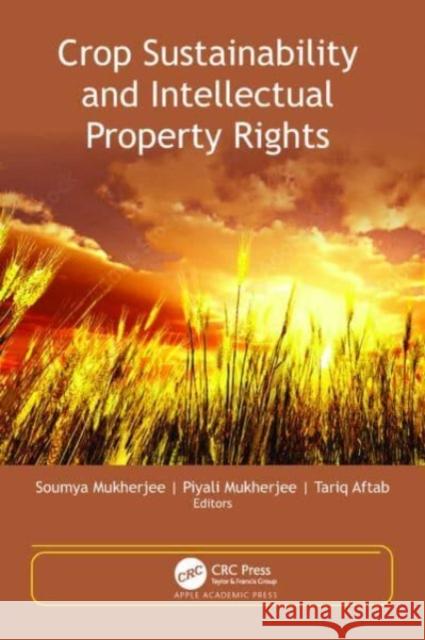Crop Sustainability and Intellectual Property Rights » książka
Crop Sustainability and Intellectual Property Rights
ISBN-13: 9781774913192 / Angielski
A comprehensive look at traditional agriculture, crop sustainability, and strategies associated with crop tolerance to adverse environmental conditions. It also highlights the role of agricultural intellectual property rights, along with the implications for plant patents and geographical indication in plant products.
This book, Crop Sustainability and Intellectual Property Rights, merges the concepts of traditional agriculture, crop sustainability, and intellectual property rights associated with plant protection and agricultural products.
This volume provides a comprehensive account of the perspectives of traditional agriculture, crop sustainability, and various strategies associated with crop tolerance to adverse environmental conditions. It also highlights the role of agricultural intellectual property rights, along with the implications for plant patents, protection of farmers’ rights, and geographical indication in plant products to provide a broader outlook toward strategies for sustainable agriculture and global food security associated with IPR.
The chapters provide an overview of sustainable crop cultivation in a variety of ways, with both traditional agriculture as well as with new biotechnological approaches. The volume explores several stress resilience strategies and issues for crops, considering how to mitigate the effect of increased carbon dioxide concentration, heavy metal pollution, over-salinized soils, and cold spells. It also discusses how to make desert farming more efficient; how to increase abiotic stress tolerance of crops with grafting, seed soaking/priming, soil amendment, and foliar applications; and more.
The chapters on agricultural intellectual property rights address IPR in conjunction with food security, the rights of farmers, legal applications and protection of plant patents, protection of traditional knowledge, international legal issues, and plant variety protection rights in agriculture and more.
The book will be valuable for academicians and researchers at universities and research institutes working on stress physiology, genomics, proteomics, genetic engineering, breeding, and sustainable agriculture. Furthermore, lawyers, policymakers, and legal executives associated with agriculture and plant science will find useful information as well.











